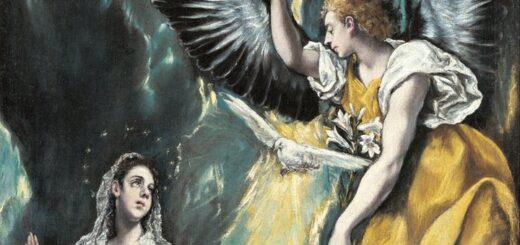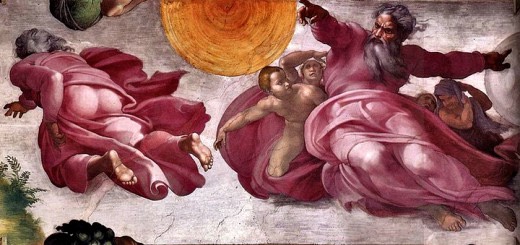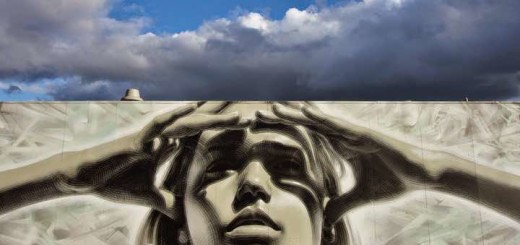The power of God and the touch of his prophets (1 king 17: 8-24)
 Biblical reflections* by Irene Monroe, David Wynn and Mona West taken from the Out in Scripture project (United States), from January 2007, freely translated by Giacomo Tessaro
Biblical reflections* by Irene Monroe, David Wynn and Mona West taken from the Out in Scripture project (United States), from January 2007, freely translated by Giacomo Tessaro
The widows are very present in the steps of this Sunday. In the ancient Israel the value of a woman was measured on her ability to procreate. It was assessed as a unmarried Virgin in the paternal family or as a manufacturer of children in the husband's family.
Therefore the widows were considered value devoid according to the patriarchal standards of Israel and often found themselves on the margins of society.
The only way in which a widow could have a value was to have male children, in order to strengthen the patriarchal system that evaluated a woman according to the men who defined it.
Due to their state of marginality, special laws were created in Israel to be able to take care and protect the poor widows. However, these laws were often ignored, as confirmed by the accusations of prophets such as Amos (2: 6-7).
In 1 king 17: 8-24 the story of Elia's meeting with the widow of Sarepta starts a cycle of stories on the prophet who begins in this chapter 17 to end in 2 kings 20. Elia has just announced at the Acab monarch that there will be a famine in the country. God then supplies food of food first through a crow, then through the widow.
When the prophet approaches the widow to ask her for food, she initially denies it because her stocks are over and, as often happens, the poor are the first to suffer for natural disasters such as famine (as happened in New Orleans on the occasion of Hurricane Katrina). Elia warns the widow not to fear, and through her offer of hospitality a miracle in the form of a flour jar and an orcio of oil that do not end.
- How is the value of lesbians, gay, bisexuals and transgender in an heterosexist society measured? How are LGBT people on the margins of society and the Church as a result of such attitudes? Are there specific documents of hospitality that your congregation could put in place towards LGBT people? What miracles could derive from it?
As soon as the widow dodged a danger - hunger - he must face another: the death of his only son. The prophet brings him back to life with his powerful touch and with this experience the woman meets the Word of God through the prophet Elia.
Similarly, Jesus meets Nain's widow in Luke 7: 11-17. Women are very present in Luca's Gospel and the widows appear more in Luca than in every other book of the New Testament. Often Luca brings together stories with male and female characters like this, which tells the awakening of the only son of a widow, with that of the awakening of the only daughter of Giairo (8: 40-56).
As in the story of 1 king, it is the touch of Jesus who brings the boy back to life. And similarly people react to the actions of Jesus as the widow reacts to Elia's actions: God makes himself known through acts, therefore Jesus and Elia are proclaimed prophets of God.
The Torah, which contains Jewish teaching, prohibited contact with corpses. In the two stories Jesus and Elia risk becoming ritually impure because of their contact with a corpse; But the two prophets pass the boundaries of pure and the impure for life to be returned.
Often, in particular because of the AIDS, LGBT people are considered "untouchable" by community who are afraid of the difference and that act on the basis of the disinformation that homosexuality and gender variation are "diseases". The stories of 1 king and Luca offer very valid examples of a touch that heals and based on compassion, not on purity.
- Can you identify ways in which your congregation is engaged in a touch that heals and transcends prejudice? What could be a "transgressive act of compassion" for you?
The stories of the two widows and the declarations of Paolo in Galati 1: 11-24 highlight the importance of the direct experience of the power of salvation and refreshment of God in his journey of faith. For Paul this materialized in his direct experience of Jesus on the way of Damascus (acts 9), to whom he alludes to Galati: "I did not receive it [the Gospel] nor did I learn it from men, but by revelation of Jesus Christ" (1:12).
We LGBT people can draw courage from these steps to rely on our experiences of the power of salvation and refreshment of God, experiences that become the source of our authority when we speak publicly and touch the others for the cause of the evangel.
The psalms scheduled for this Sunday underline the themes of justice for the widow and the orphan (Psalm 145 [146]) and healing (Psalm 29 [30]). Psalm 145 (146) is a hymn of praise to God who frees the prisoner, opens his eyes to the blind, raises those who have fallen, do not look away from the foreigner and support the orphan and the widow. Psalm 29 (30) is an anthem of thanks for healing from a disease.
The community is invited to join this song, thanking God for listening to the cry of the psalmist and responding with healing. Both the psalms insist on the importance of the public testimony of specific acts of liberation and healing in the form of praise and thanksgiving.
- Who are the "widows" and the "orphans" in your community? What acts of liberation and healing are taking place within your community?
Our prayer
God of everything and everyone
arouses our collective spirit
so that we can know
freedom and fullness
that come when we really can
see and touch
the divine
within us and others.
Amen
* The biblical steps are taken from the Bible of Jerusalem/CEI
Original text: Ordinary Time Through Reign of Christ Sunday






